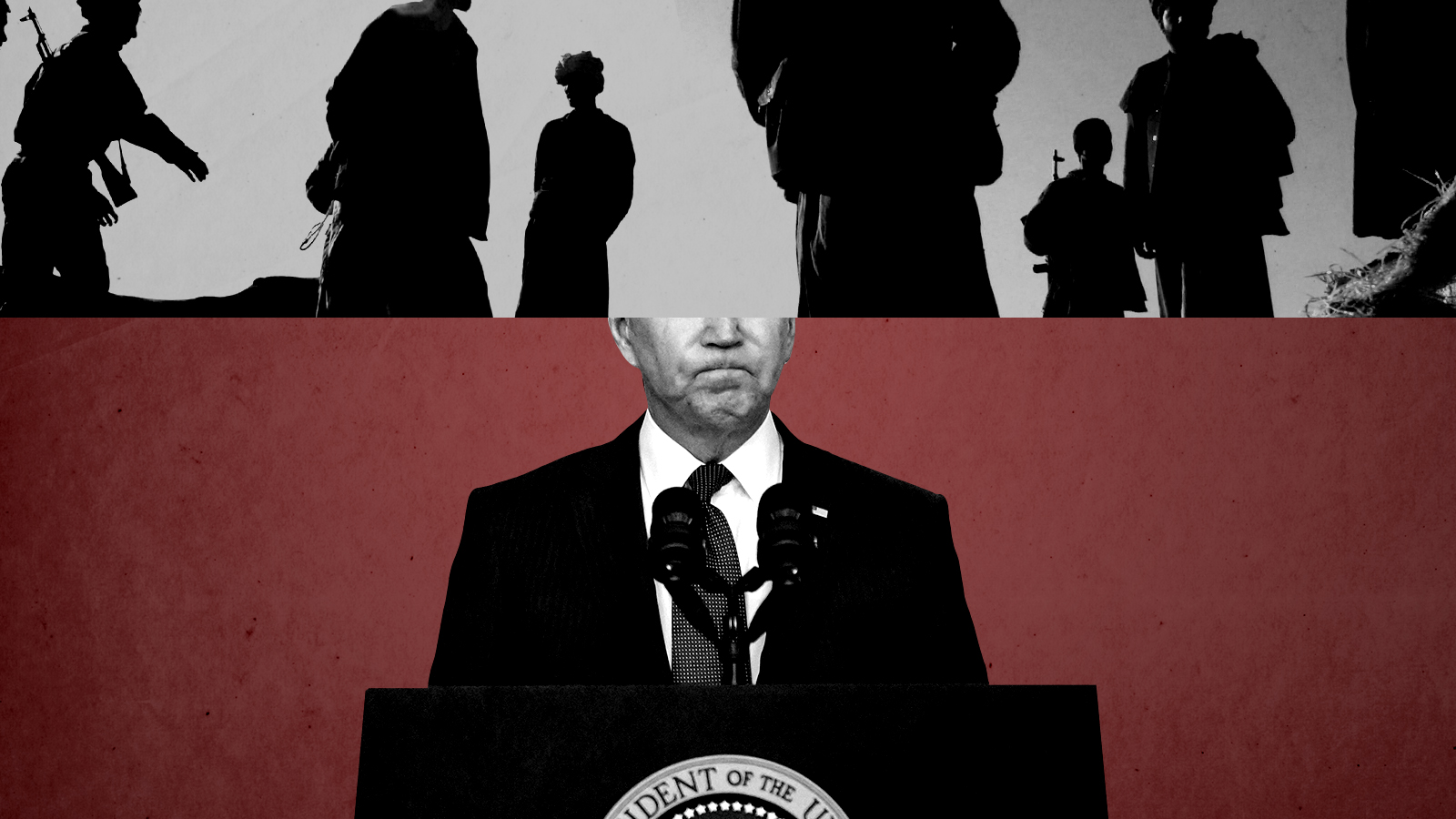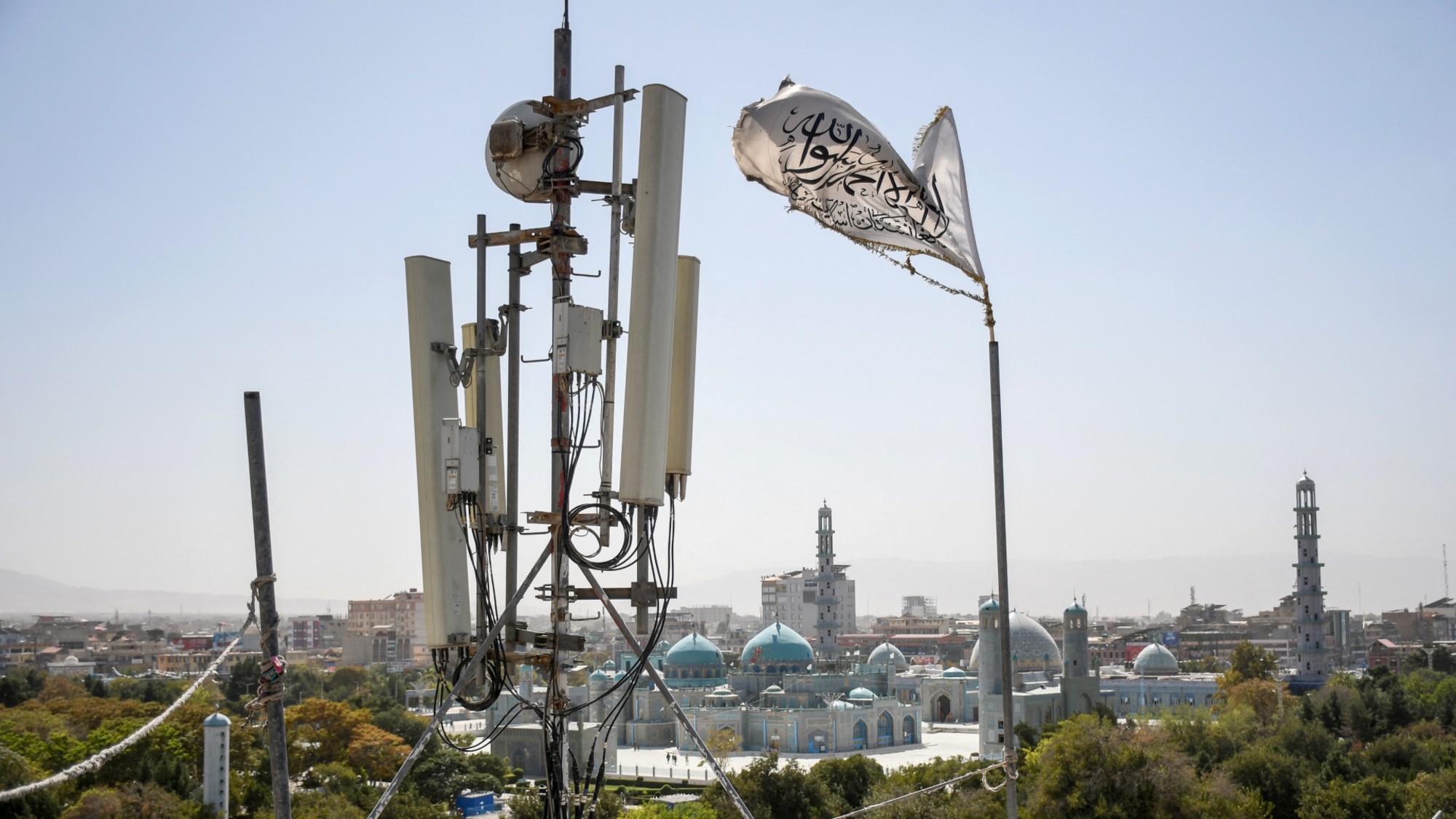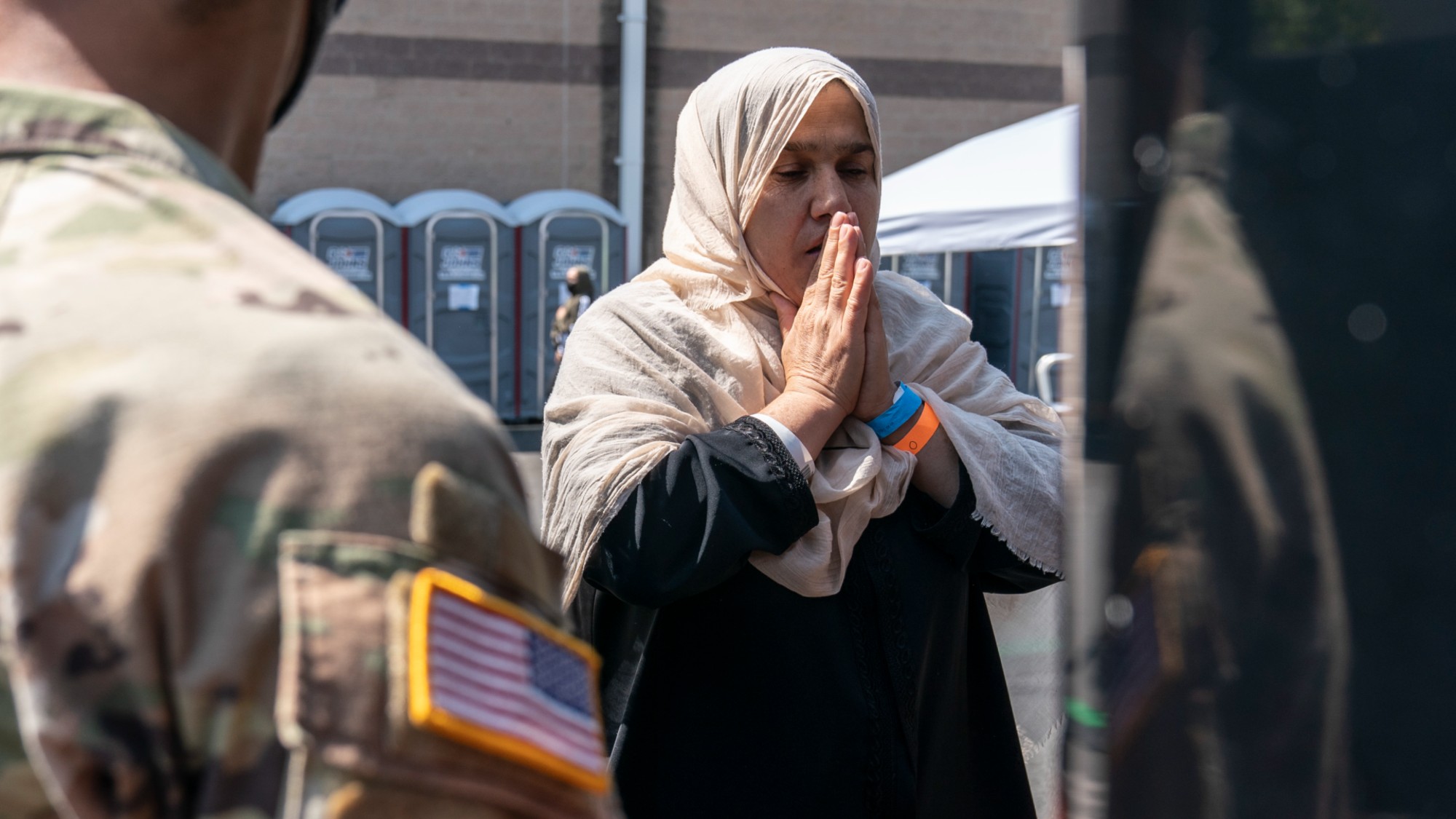Avoiding America's next big mistake in Afghanistan
The U.S. needs to resist the temptation to aid the Northern Resistance against the Taliban


A free daily email with the biggest news stories of the day – and the best features from TheWeek.com
You are now subscribed
Your newsletter sign-up was successful
With the American withdrawal and evacuation from Afghanistan nearing completion over the coming days, attention is bound to turn to what comes next for U.S. involvement in the region. That's what has me worried.
If the Biden administration were smart, it would remain focused on one narrow concern above all others — preventing the Taliban from turning Afghanistan once again into a home base for terrorist groups with international reach. It should be possible to accomplish this goal with a simple warning: We own the skies, and we will be watching. Any and all terrorist training camps will be instantaneous targets for drone strikes, or worse. We proved 20 years ago that we could topple a Taliban government in a matter of weeks. We will not hesitate to do so again if the terrorist threat returns. Afghanistan's neighbors and most likely its closest allies moving forward — Iran, Pakistan, and China — will want to avoid a renewal and intensification of instability, let alone a return of American forces to the region. That (as well as other forms of leverage) should be sufficient to ensure they help behind the scenes to keep the Taliban in line.
This is, once again, what the Biden administration would do if they were smart. But America's track record gives reason for doubt. This record reveals that in such situations, the U.S. often finds itself tempted by hubris — believing we are able to micromanage and manipulate political events within vastly poorer and weaker countries that defy our will, embarrass our political class, or offend our moral sensibilities. That such efforts sometimes fail to work out well for us and almost invariably spread misery to the people living within the countries concerned doesn't at all mean we won't try it again.
The Week
Escape your echo chamber. Get the facts behind the news, plus analysis from multiple perspectives.

Sign up for The Week's Free Newsletters
From our morning news briefing to a weekly Good News Newsletter, get the best of The Week delivered directly to your inbox.
From our morning news briefing to a weekly Good News Newsletter, get the best of The Week delivered directly to your inbox.
Enter the Northern Resistance Front of Afghanistan.
The successor to the Northern Alliance that fought alongside American forces during our post-9/11 invasion of Afghanistan, the Northern Resistance is led by Ahmad Massoud, son of a mujahid (Ahmad Shah Massoud) who rose to prominence fighting the Soviet Union and was assassinated two days before the 9/11 attacks, and Amrullah Saleh, who served as vice president of the Afghan government before the fall of Kabul. At the moment, the group (with an estimated 6,000 to 10,000 men) controls the mountainous Panjshir province north of the Afghan capital, the only province the Taliban has failed to seize in its offensive this summer. It hopes to use that position to wage a guerrilla war against the newly installed government in Kabul.
But it will only be able to do this if it receives substantial sums of money and an ample supply of weapons from the United States. That's why Massoud published a Washington Post op-ed last week pushing every conceivable rhetorical button to drum up American (and British and French) support. The United States, Massoud argued, should remain the "great arsenal of democracy" it was during World War II, which means it should continue to do battle against democracy's enemies, like the Taliban. The Afghan people "share your values," he insisted. But most crucially, if the U.S. doesn't send money and aid right away, "Afghanistan will without doubt become ground zero of radical Islamist terrorism; plots against democracies will be hatched here once again." Other websites have helped to amplify the message that American weapons, ammunition, and other military supplies are "the only remaining hope" for the Northern Resistance.
So far, the effort is working like a charm, at least with many Republicans. Illinois Rep. Adam Kinzinger thinks the U.S. should offer assistance to the Northern Resistance. Wyoming Rep. Liz Cheney says that "the least we can do now is support the resistance effort in any and all ways as they combat the Taliban's treacherous regime." South Carolina Sen. Lindsey Graham and Florida Rep. Mike Waltz are, in the words of Politico reporter Andrew Desiderio, "call[ing] on Biden to recognize the Panjshir opposition as Afghanistan's legitimate government." (Waltz told Desiderio that he's been in direct contact with both Massoud and Saleh about the matter.) If Democrats begin joining the growing chorus in support of such a move, the president could begin to face serious pressure to go along with the idea of backing the Northern Resistance.
A free daily email with the biggest news stories of the day – and the best features from TheWeek.com
That would be a mistake — but one the U.S. has made before.
Over and over again during the Cold War, presidents and the national security establishment opted to interfere in the internal politics of developing countries seen as leaning in the direction of our geopolitical adversaries. We'd send money and arms to rebels and insurgents, hoping to undermine the authority of governments deemed too cozy with communism. The result, more often than not, was civil unrest, terrorism, bloody crackdowns on dissent, economic destabilization, and other forms of political and social turbulence.
That was usually bad for the people living in the destabilized countries. Unfortunately for them, it also sometimes worked to our advantage in our rivalry with the Soviet Union.
The consequences in Afghanistan today would be quite a bit less morally and strategically ambiguous.
International terrorism can emerge in a country in one of two ways. The first is through deliberate government cultivation. We've seen that for decades from Iran, and it's what the Taliban pursued in Afghanistan prior to 9/11. Then there's terrorism that emerges from failed states, when armed groups take advantage of a vacuum of authority and absence of security to set up extra-legal networks, schools, and training camps within a country plagued by chaos. We've seen variations on this in post-2003 Iraq, Libya, Syria, Somalia, and other countries of the Greater Middle East.
It's certainly possible that the Taliban will actively sponsor international terrorism once American forces have been fully withdrawn from the country. But as Biden made clear after the terror attack at the Kabul airport last Thursday, there is reason to think the Taliban will grasp that it's in their interest not to make the same mistake twice. (The last time they provided support for al Qaeda, they ended up deposed from power and spent two decades fighting to win it back.)
But if renewed state sponsorship of terrorism by the Taliban government is possible going forward, the form of terrorism that thrives in a failed state is nearly guaranteed to become a major problem if we encourage and provide material support for the Northern Resistance's planned insurgency. There is zero chance that such an uprising will be capable of overthrowing the Taliban regime and instituting and consolidating a more democratic government in its place. (We oversaw the formation of just such a government and defended it for years from within the country itself, and yet it remained so fragile that it crumbled within weeks of our announced withdrawal this summer.) All such an uprising can hope to achieve is the social and economic destabilization of Afghanistan — turning the country into the perfect place for international terrorist groups to thrive and proliferate.
Of course, as last Thursday's airport attack by ISIS-K makes clear, such groups are already there and capable of making a mess of things, at least, so far, within Afghanistan itself. But it will only get worse if we help the Northern Resistance sow further chaos.
That would be bad for the U.S., which would not only be unintentionally contributing to the spread of international terrorism but also antagonizing Afghanistan's neighbors, who will be displeased by the American contribution to keeping the country a basket case, and therefore less inclined to work with us on other matters of mutual interest.
But such an outcome would also be bad for the long-suffering people of Afghanistan, who would be facing the prospect of having to endure the living hell of an interminable insurgency with no reasonable hope of a better future on the other side. Life under the Taliban will undoubtedly be worse for many than it was under the government we propped up for years, but things can always decline further — and they clearly will if the country tears itself apart in a civil war fueled by American money, arms, and shortsighted vindictiveness.
Supporting the Northern Resistance would be a mistake, albeit one we've made many times before. Let's hope we've finally learned our lesson.
Damon Linker is a senior correspondent at TheWeek.com. He is also a former contributing editor at The New Republic and the author of The Theocons and The Religious Test.
-
 What to know before filing your own taxes for the first time
What to know before filing your own taxes for the first timethe explainer Tackle this financial milestone with confidence
-
 The biggest box office flops of the 21st century
The biggest box office flops of the 21st centuryin depth Unnecessary remakes and turgid, expensive CGI-fests highlight this list of these most notorious box-office losers
-
 What are the best investments for beginners?
What are the best investments for beginners?The Explainer Stocks and ETFs and bonds, oh my
-
 The billionaires’ wealth tax: a catastrophe for California?
The billionaires’ wealth tax: a catastrophe for California?Talking Point Peter Thiel and Larry Page preparing to change state residency
-
 Bari Weiss’ ‘60 Minutes’ scandal is about more than one report
Bari Weiss’ ‘60 Minutes’ scandal is about more than one reportIN THE SPOTLIGHT By blocking an approved segment on a controversial prison holding US deportees in El Salvador, the editor-in-chief of CBS News has become the main story
-
 Has Zohran Mamdani shown the Democrats how to win again?
Has Zohran Mamdani shown the Democrats how to win again?Today’s Big Question New York City mayoral election touted as victory for left-wing populists but moderate centrist wins elsewhere present more complex path for Democratic Party
-
 Millions turn out for anti-Trump ‘No Kings’ rallies
Millions turn out for anti-Trump ‘No Kings’ ralliesSpeed Read An estimated 7 million people participated, 2 million more than at the first ‘No Kings’ protest in June
-
 ‘The Taliban delivers yet another brutal blow’
‘The Taliban delivers yet another brutal blow’Instant Opinion Opinion, comment and editorials of the day
-
 It is 'beyond time for us to seek bipartisan solutions' for Afghanistan
It is 'beyond time for us to seek bipartisan solutions' for AfghanistanInstant Opinion Opinion, comment and editorials of the day
-
 Ghislaine Maxwell: angling for a Trump pardon
Ghislaine Maxwell: angling for a Trump pardonTalking Point Convicted sex trafficker's testimony could shed new light on president's links to Jeffrey Epstein
-
 The last words and final moments of 40 presidents
The last words and final moments of 40 presidentsThe Explainer Some are eloquent quotes worthy of the holders of the highest office in the nation, and others... aren't
